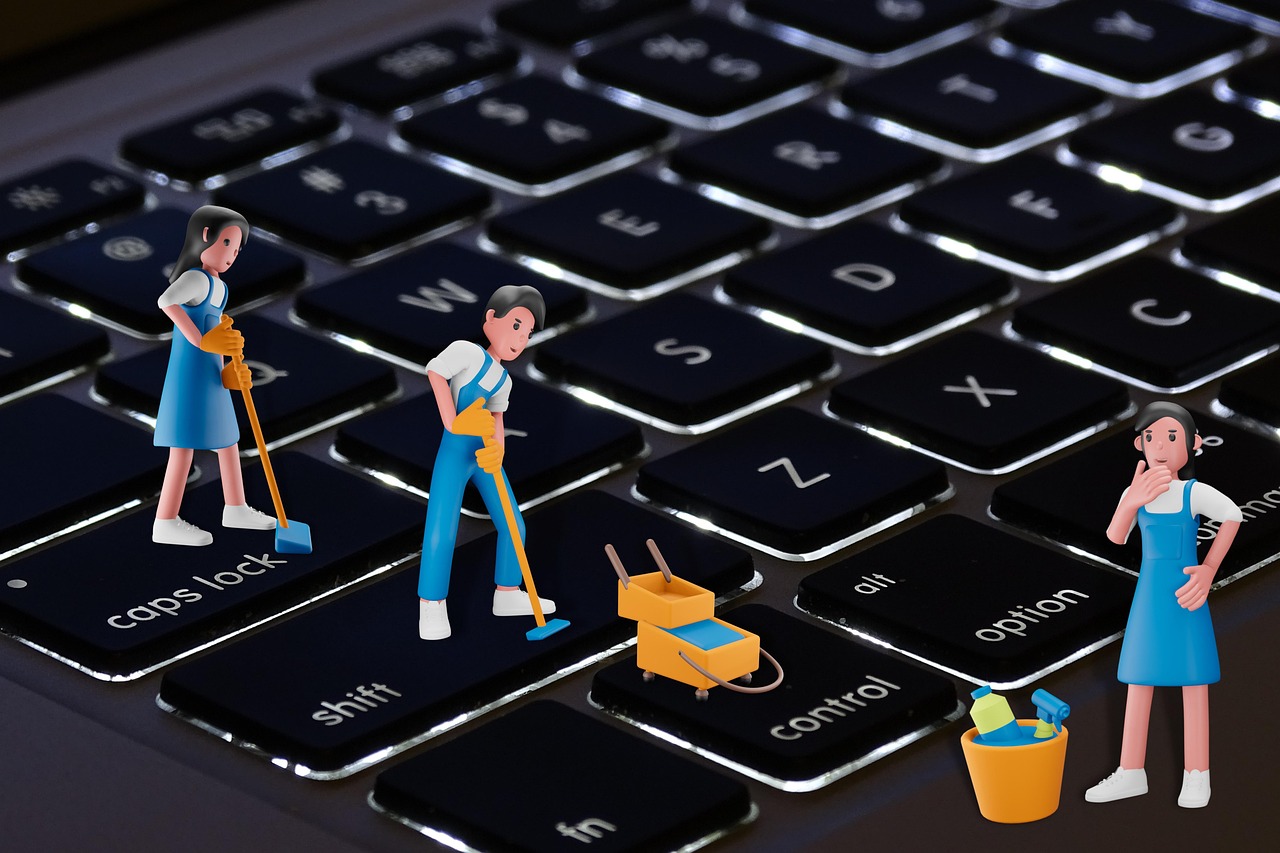When you use your PC daily, you collect a lot of clutter on the hard drive. This collection of old files you do not need anymore can be archived to the external drive, or it will slow down the computer’s performance. However, there are other types of garbage – downloads, temporary files, and duplicates. They should be cleaned immediately and regularly.
If you want to know that your PC needs cleaning, consider the following things. First, have you ever installed any applications or games and forgotten about them? There are even such programs that can install other programs automatically. They can be free trials that you have never asked for. Another thing to consider is that Microsoft releases new versions of its programs almost every six months. When you update your OS to these versions, the system creates backups of all the old files that take up a lot of space.
Remember that your activity creates many temporary files whenever you download and launch extensions and applications or simply browse the Net. They allow you not to redownload the app every moment you need it. But, unfortunately, they pile up and occupy the space on your hard drive.
These are only three things you need to remember when you wonder how junk files collect on your PC. There are many others, too. We want to explain how to get rid of these files and tidy up the hard drive for optimal performance.
What’s the Use of Cleaning Up Garbage from Your PC?
We can name at least two essential advantages of regularly cleaning your hard drive from temporary files and other garbage. The first benefit is receiving more disk space. Sometimes, it is only a few hundred megabytes, but if there are too many junk files, you can obtain gigabytes of free space for further use. You can download more data, programs, and essential software to improve your performance.
Another advantage is fixing the issues. If there are too many old cache files, they can lead to operational errors. New data cannot perform well, and your new software can utilize outdated files. It can result in files that fail to open and software that does not perform as expected. You may also face the entire system crashing or freezing. That is why, if your computer starts to behave weirdly, think about cleaning the hard drive.
There is a common misconception related to cleaning a PC, though. Many believe that getting rid of junk files can speed up the computer. However, old files do not use any system resources apart from space. So they cannot slow down the entire system. Nevertheless, remember that if you don’t have spare space on the drive, the applications cannot create temporary files that are vital for their operation. That will lead to applications slowing down or non-functioning. Therefore, it would help to have at least several free GBs on the hard drive to let your system operate smoothly.
How to Remove Junk Files?

You have at least two options if you want to clean your computer. First, you may find new cleaning software on the Net that is very efficient. The problem is that many options are available online nowadays, and picking the one you need is always challenging. That is why you can find all the critical information to facilitate your choice on the site, which specializes in the analysis of different pieces of software, apps, and innovations.
Another way to clean up your computer is by using a built-in Windows tool called Disc Cleanup. First, click Start and find File Explorer in the menu. Next, go to This PC and right-click the C: drive.
In the tab ‘Properties,’ you will find the Disc Cleanup button and get the list of the files that should be removed. You can also enhance the cleaning effect by clicking ‘Clean Up System Files.’ Then, choose the categories you want to remove and press ‘OK’ to delete the files.
If you feel confused, you can always use the advice, tips, guides, and manuals that can be found on the Web.
How to Remove the Old Download Files
You may also need to get rid of the old downloads. Just open the folder ‘Downloads,’ which you will find on the left panel of the Computer Explorer. This default storage contains all the downloading files if you haven’t downloaded any programs to your desktop. Therefore, you need to check that, too.
The most common files that you may need to delete are called installers. You do not need these files as soon as you have downloaded the program. It is not so difficult to detect such files. Older documents and personal files you do not use are more challenging to detect. You may prefer to send them to the archive, so you have to view them according to their age. You must right-click and opt for the ‘Sort By’ selection and ‘Date.’
Deleting Duplicate Files
It is also somewhat tricky to uncover duplicate files. You will need brand-new cleaning software to do that. CCleaner or any other program of this type can be pretty helpful. You can click ‘Tools’ and then go to ‘Duplicate Finder’ to run the program. The only recommendation is to back up these duplicate files somehow before completing the cleaning, just to be safe.
Final Thoughts
Suppose you are not sure that it is time to clean your PC of junk files. Consider such things as a ‘Low Disk Space’ notification from your computer, the difficulties in saving the programs of files on the hard disk, or slow and inconsistent performance of your device, with often freezes and crashes. If you face just one of these signs, clean up the hard drive immediately to avoid more severe problems.
Be attentive while cleaning because you can delete essential system files that maintain the computer’s work. That is why be sure that you remove garbage only from such locations as Downloads, Pictures, Documents, Videos, or Music, but not from anywhere else. Think about a reliable storage format to back up your old files and downloads in case you may need them in the future. It is excellent if you have an external USB hard drive or if you can store your files on the cloud.
We hope you will avoid many performance problems if you follow these tips.

